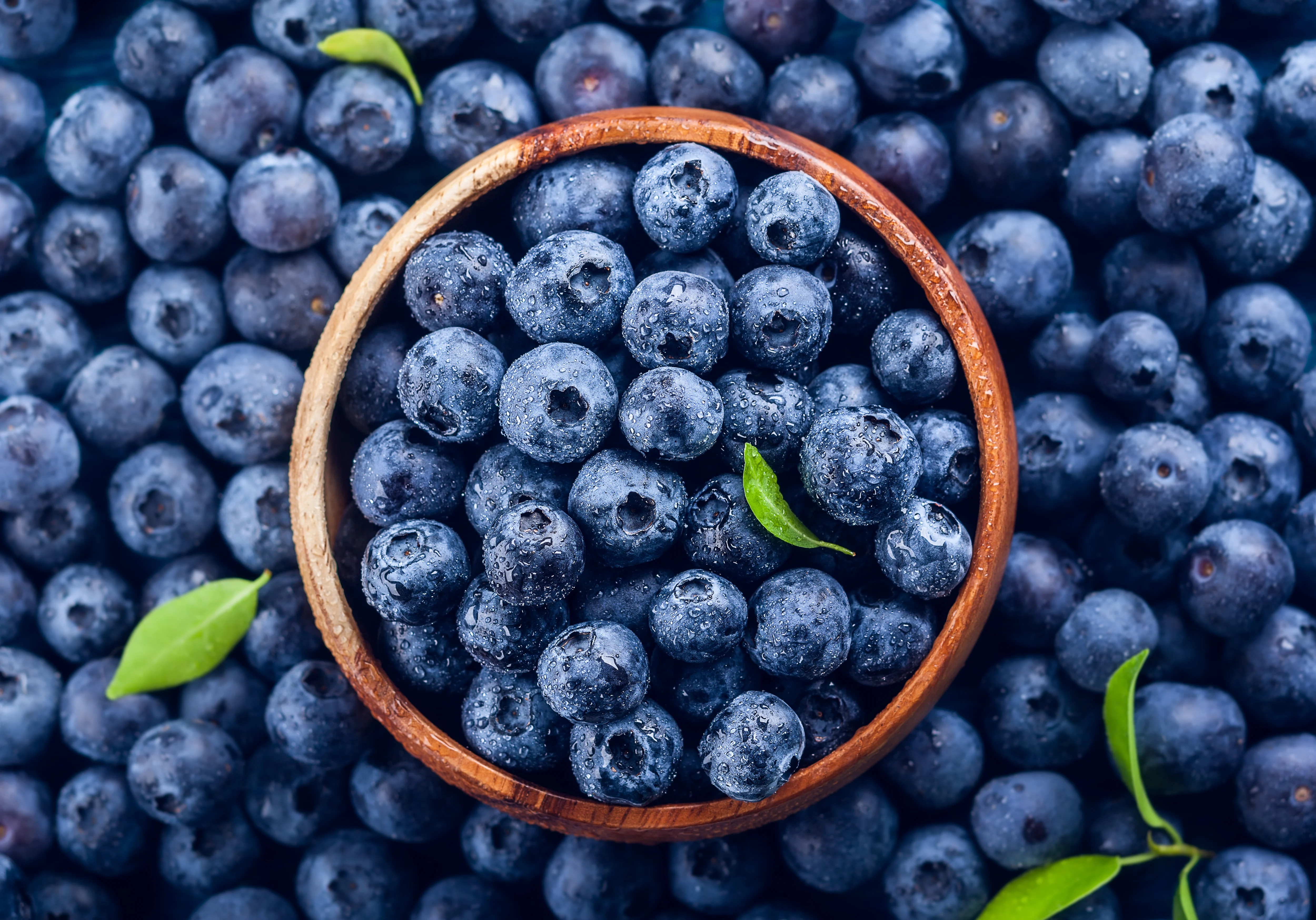The humble blueberry brings much more to the table than just being the most reliably good fruit in a fruit salad. As the body of research behind the blueberry grows, we’re seeing the superfruit prove itself as a powerhouse of protective properties. But do enough people appreciate the blueberry? Most people know that blueberries benefit cardiovascular and overall general health, according to a research survey examining over 2,000 Americans’ knowledge on blueberries. However, most people are unaware of its benefits related to vision, memory, and healthy aging.
The anthocyanins in blueberries — found higher in concentrations than most other food sources — are responsible for its blue hue and high antioxidant levels. And this is where the blueberry gets a good deal of its power. In fact, the blueberry has even been gaining ground as brainfood: the University of Reading in the Southwest of England research study Getting Forgetful? Blueberries May Hold the Key found that blueberries are effective at reversing age-related deficits in memory.
Read on for 4 more health benefits of blueberries. We bet by the end you’ll be hopping on the blueberry bandwagon!
1. Blueberries Support Eye Health
If you’re one of 60% of people who spend the majority of their waking hours staring at a digital screen, eating blueberries could help act as a preventative measure for eye health. Prolonged exposure to blue light waves from screens can cause eyestrain, physical eye problems, mental fatigue, and sleep problems.
Good thing the anthocyanins in blueberries extend their antioxidant powers to vision. Scientists found in a recent study that people with a blueberry supplemented diet had improved color contrast recovery after exposure to glare. The study also found blueberries might improve visual health among people who have existing eye disorders. Here’s finally a good time to ‘eat with your eyes first!’
2. Blueberries Support Gut Health
The gut microbiome loves three things present in blueberries: fiber, polyphenols, and anthocyanins. A serving of blueberries boasts 3.5 grams of fiber and a high polyphenol content, both of which considered pre-biotics, meaning they feed the bacteria in your gut and promote healthy digestion. Evidence of blueberries helping increase the good bacteria in the gut was found in a 2018 scientific study using rats. The same study also found that blueberry supplementation led to compositional changes in the gut, associated with improvements in systemic inflammation and insulin signaling.
 3. Blueberries Are Diet-friendly, Low in Calories and High in Antioxidants
3. Blueberries Are Diet-friendly, Low in Calories and High in Antioxidants
Blueberries are low in calories, low in fat, and low on the glycemic index, making them a friendly nutrient-dense snack that may help with weight loss and insulin sensitivity. According to the American Diabetes Association, blueberries are considered a “diabetes superfood.” Research has been encouraging when it comes to blueberries and the metabolic system. Obese adults with prediabetes improved their insulin sensitivity by drinking a smoothie with blueberry bio-actives twice a day, according to a 2010 study by the Journal of Nutrition. Further, A 2013 study by researchers in Maine shows that regular long-term wild blueberry diets (2 cups a day) may help improve or prevent pathologies associated with metabolic syndromes, like impaired cardiovascular health or blood pressure.
4. Wild, High Altitude Blueberries Have Even More Potent Antioxidant Power
Not all blueberries are created equal. Wild blueberries pack a powerful punch for a few reasons. Wild blueberries growing in higher latitudes and harsh environments have to adapt to survive, producing higher levels of flavonols, anthocyanins, and polyphenols, according to a 2012 study on how temperature and light affect the nutritional value of blueberries. A company that harvests Blueberries growing in 24hr sunlight in the Alaskan wilderness, Denali Biotechnologies, has measured up to 10 times the bioactive compounds and antioxidant capacity.
Further, growing research on blueberries, especially wild blueberries, shows promise in the areas of supporting a healthy response to inflammation in the central nervous system, maintaining blood sugar levels already within a healthy range, and promote optimal weight. There’s also a difference between blueberries that grow organic in the wild and blueberries grown on farms. Untouched in the wilderness, different species of the plant undergo internal changes, producing blueberries with a much more complex genetic makeup than farmed blueberries.
If you can’t get your hands on wild blueberries, one way to get the most out of your blueberries is to use frozen blueberries (freezing blueberries improves antioxidant availability) or a freeze-dried whole berry powder to make blueberry smoothies.





 3. Blueberries Are Diet-friendly, Low in Calories and High in Antioxidants
3. Blueberries Are Diet-friendly, Low in Calories and High in Antioxidants 



